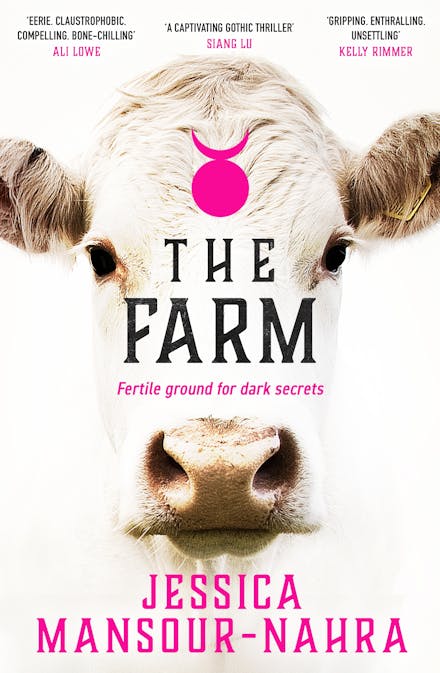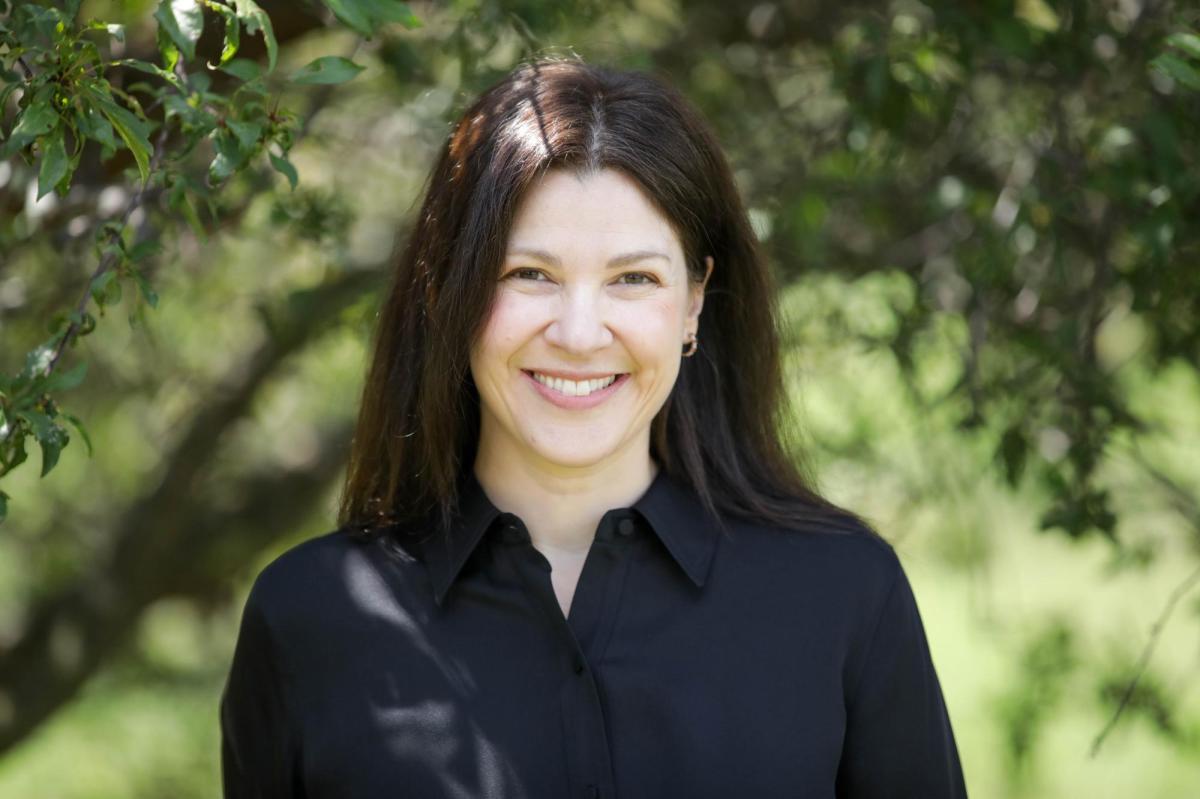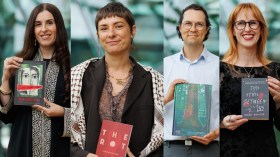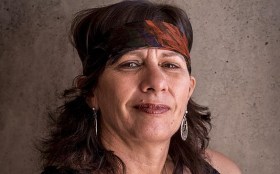The Farm: quick links
Set against the backdrop of rural New South Wales, The Farm is a psychological thriller brimming with ghosts and family secrets.
It’s the kind of slow-building, hair-raising saga that makes you want to flick back to the start and scour the pages for any clues you might have missed the first time.
The novel opens with 37-year-old business consultant Leila having a miscarriage. The description of Leila pulling up a list of baby names on her Notes app and deleting them letter by letter is devastating. After having surgery to remove ovarian cysts and fibroids, Leila sets off on a year-long sabbatical at her partner James’ family farm.
There, what starts as small, unsettling quirks – the scratching of mice in the walls, whispers that might just be the wind – turns into a truly disturbing haunting of a woman who is grieving, isolated on a rural property, and struggling with an addiction to painkillers and Valium.
The Farm: multilayered depiction of women’s bodies
Mansour-Nahra’s portrayal of miscarriage is dexterous; when Leila’s boss permits her to work from home while she miscarries, the suggestion of all the women who aren’t able to miscarry in the privacy of their own home hangs thick in the air. Leila’s experience of medical misogyny at doctor’s appointments will resonate deeply with the two in three Australian women reported to have faced similar discrimination. The book presents a multilayered depiction of the complex world women – and women’s bodies – must navigate in this day and age.
One of the most affecting parts of The Farm is Mansour-Nahra’s portrayal of Leila’s relationship with her mother growing up. Verbally, emotionally, and physically abusive, Leila’s mother is a domineering presence throughout the book, two decades after her death when Leila was 17.
The flashbacks depicting Leila as her mother’s sole carer after she was diagnosed with pancreatic cancer are confronting to read. Leila’s complex emotions towards her mother are uncomfortable and raw – it’s one of the most moving aspects of the novel.

The Farm: what’s real and what’s imagined?
The extent of the gaslighting Leila is subjected to means the reader frequently questions what is real and what is imagined. Simultaneously, the reader wonders how Leila continues to trust James, whose primary goal is ostensibly to poke holes in Leila’s experience of reality.
It’s an astute portrayal of how an abusive relationship can warp a person’s reality, beginning with small behaviours that can be reasonably explained at the time and soon snowballing into a complete loss of autonomy for the victim.
Complicating their relationship even further is the fact that James works as a psychologist; he always has a logical explanation for the strange phenomena Leila witnesses around the house. Leila is always expectant of these platitudes, so she starts withholding information from him.
The Farm: instant connection
Particularly in the first 100 pages, Mansour-Nahra’s writing is very straight-talking. Much of Leila’s interior world in these early stages is stated matter-of-factly, her thoughts and emotions succinctly synthesised for the reader. At times, this writing style might be too direct for some readers, but an advantage of this style is that there’s not much separating Leila from the reader.
The connection between reader and protagonist is instant. As such, the reader forges deep connections with the few supporting characters Leila does interact with throughout her isolated daily routine; it’s impossible not to fall in love with Rusty, James’ family’s ‘failed’ farm dog who finds his calling as Leila’s protector. The cattle farmer, Matt, is another richly-drawn comfort amid the disquieting setting.
Read: Sister Bullwinkel review: a biography by Lynette Ramsay Silver tackles the truth after 80 years
Mansour-Nahra deftly crafts a deeply unsettling atmosphere. The suspense builds until the reader is desperate to unearth the farm house’s buried secrets. When Leila compares herself to a ghost like those she’s being haunted by, the reader’s hope that she’ll find a way out quivers. The Farm keeps readers guessing right until its thrilling end.
The Farm by Jessica Mansour-Nahra is published by Hachette.






